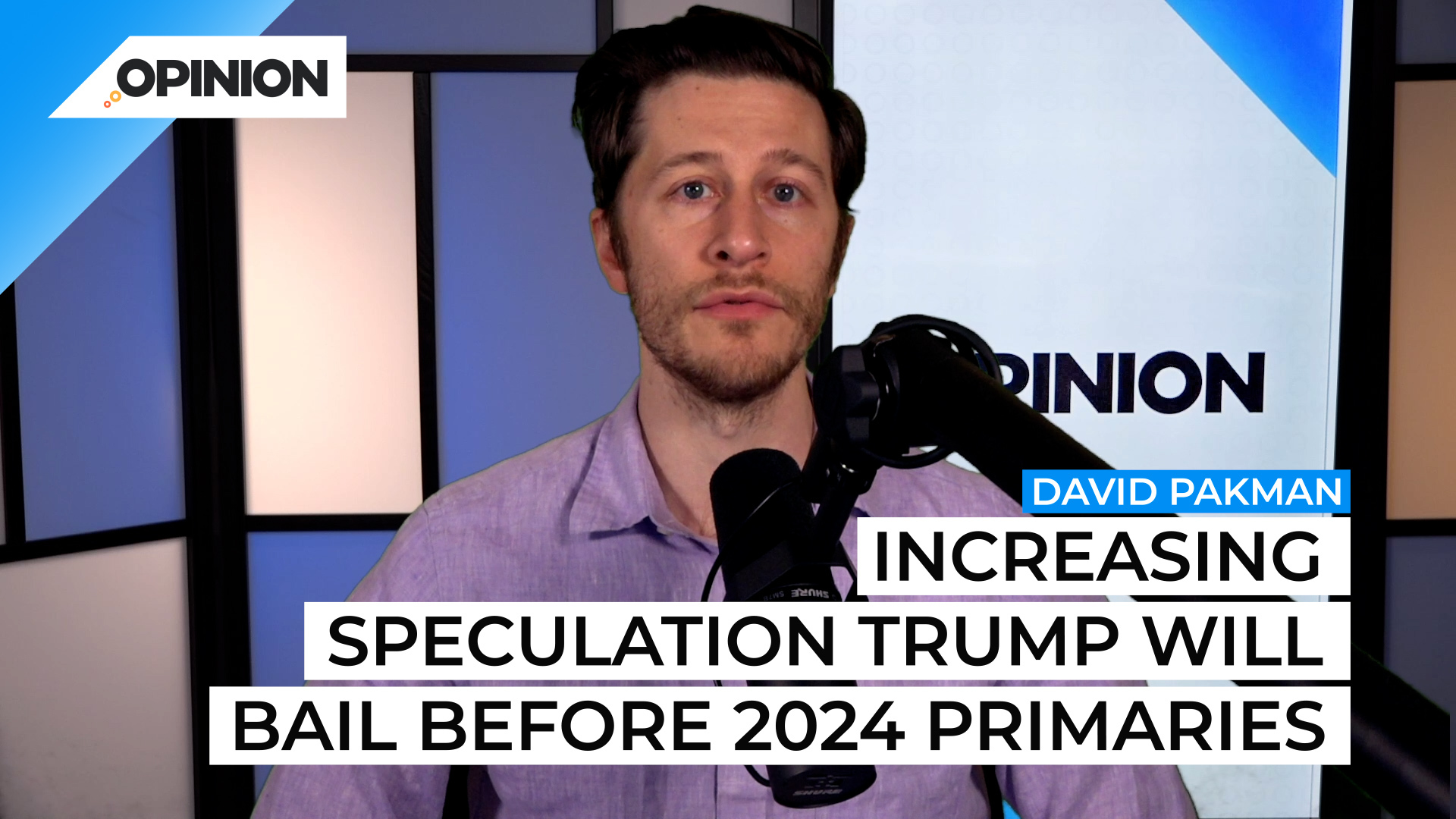
Commentary
-
Our commentary partners will help you reach your own conclusions on complex topics.
We now know that Democrats will control the US Senate in the next two year period, not 50-50, requiring Kamala Harris for every tie breaking vote, but 51 to 49. And this happens as a result of the results of the December 6 Georgia Senate runoff wherein challenging Republican candidate Herschel Walker, lost to incumbent Democratic Senator Raphael Warnock. This dates back to the November 8 midterm elections. Georgia has a 50% rule. That rule states that if no candidate gets 50% of the vote, the top two vote-getters will be in a one versus one runoff, for lack of a better term, because of a third party candidate getting about 2% of the vote. Neither Warnock nor Walker achieved that 50% margin on November 8th, so roughly one month later, on
December 6, there was a runoff and indeed, Herschel Walker lost by about a point and a half roughly. This has significant implications, and they are far reaching. Now let’s kind of go from the narrowest to the broadest implications and considerations. Narrowly, first are, what are the logistical differences for Democrats with a 51-49 majority, as compared to a 50-50 majority where Kamala Harris is a tie breaking vote? Well, there’s a number.
Number one, you don’t have to negotiate what’s called a “power-sharing arrangement” with the minority, which is the Republicans.
And that’s a really great thing, because those power-sharing arrangements often require, or they don’t require, but they end up with, for example, 50-50 splits on committees. And this creates this really slow process, where if, imagine a committee with 16 senators, eight Republicans, eight Democrats, if they tie eight to eight, then the vote, whatever they’re voting on, comes out to the full Senate, and they vote and then it’s 50-50. And then you bring in Kamala Harris, and she is the tiebreaker. Democrats still have the majority, they’ll still get the votes, but it takes so much longer. And so without having to do the power-sharing arrangement, and having a 51-49 majority rather than 50-50, most likely the committees will have one more democratic seat than the Senate. So on a 16-person committee, instead of eight, it will be nine to seven, and it eliminates this entire problem. Number two, no one Democratic Senator will have what is effectively a veto power. Veto power meaning if it’s 50-50 and Joe Manchin doesn’t like a bill, then Joe Manchin effectively can just veto by saying I won’t vote for it. There will be a two Senator veto power, but now it means you need two instead of one senator to act together in order to do that. So that’s definitely an advantage for Democrats as well. Stronger power to issue subpoenas where subpoenas will no longer need bipartisan support out of a committee in order to get issued, that’s a convenience. And if there were to be a Supreme Court vacancy, it could be easier. It could be easier. You never know until you know, well, who is the nominee and what are the kinds of circumstances. And then lastly, on issues that need 60 votes to pass, you only need to find nine Republicans to vote with you instead of 10. It’s a small difference. On many things, you’re not going to find even two Republicans to vote for you. So nine versus 10 may not make a difference. But it gets you one vote closer on a number of these different issues. So for the next two years, that’s the important takeaway. Second takeaway, what about the 2022 midterms? Does our perspective on the 2022 midterms change because the Senate will be 51-49 rather than 50-50? Not really. I mean, either way, regardless of this particular race and its outcome, Democrats lost the House and maintained control of the Senate. But there’s kind of this funny imagery of it’s a red wave in which Democrats gained seats in the Senate, doesn’t really feel like a red wave when Democrats gain seats in the Senate. So that’s definitely an interesting component to it as well in terms of like our takeaway, broadly of the outcome of the 2022 midterms.
What does this mean about MAGA and Trump for 2024? This is, Trump had a number of failed endorsements, I know Trump will tout “Oh, I won 210 or something like that.” It’s easy to run up the endorsement score by mostly endorsing incumbents and the winners of Republican primaries in very red states. Anybody can do it right? The more difficult thing is winning with endorsements in contested consequential races.
Governor of Pennsylvania where Doug Mastriano lost, Trump’s endorsee. Governor of Arizona where Kari Lake lost. Or governor of Michigan, where Tudor Dixon lost. The Senate seat in Pennsylvania where Mehmet Oz lost. All of these, Trump endorsed people. And then meanwhile, Trump barely endorsing Ron DeSantis, who’s from an arguably different wing, at least at this point of the Republican Party, and DeSantis over blows the polling and wins by 19 instead of I believe it was 11 or 12 he was expected to win by. So now there’s the question of the Trump endorsement power for 2024. And there were increasing rumors that Trump may not even make it to the primary, that if this really continues to be so ugly, and someone like DeSantis declares and continues to pull well, and it just seems guaranteed Trump’s going to lose, there is increasingly speculation that Trump will bail before the first 2024 primaries rather than suffer a defeat. Remains to be seen.
-
JD Vance doesn’t add much to Trump ticket
At the 2024 Republican National Convention, GOP presidential candidate Donald Trump selected Sen. J.D. Vance, R-Ohio, as his running mate. With Trump expected to win Ohio in the Electoral College, some observers have questioned why Trump ultimately decided on Vance. One explanation is that Vance said he would have helped Trump overturn the results of…
-
How likely is a landslide victory in November for either candidate?
With President Joe Biden’s poor debate performance and the recent attempt on former President Trump’s life, some Democratic lawmakers are warning of a landslide Republican victory and urging Biden to step aside. But three new major national polls show signs of hope for Biden’s argument that he must remain the Democratic nominee. Watch the above…
-
Should Biden step aside or not?
President Joe Biden looked and sounded notably less healthy than usual during his recent debate against Donald Trump. Biden’s performance set off alarms for some Democrats, who began discussing the possibility of running an alternative candidate. While there may be promising candidates waiting in the aisles, it’s not clear if or how Biden could or…
-
How Biden can win Florida
Donald Trump is currently projected to win Florida again in 2024, just as he did in 2016 and 2020. But, in response to Republican Florida Gov. Ron DeSantis’s legal and cultural war against the Left — including what liberals say is a war on women’s rights, education and free speech — many Floridian voters appear…
-
Donald Trump is mentally unwell
Medical experts and observers have long questioned Donald Trump’s mental and psychological health, with malignant narcissism appearing as the most consistent diagnosis of Trump’s supposed illness. Those discussions have fallen to the sidelines in recent years, but resurfaced in response to certain speeches and behavior from the former president. Watch the above video as Straight…
Latest Opinions
-
 U.S. Department of Defense
U.S. Department of Defense
Congress still trying to figure out how to reduce wasteful military spending
-
 DVIDS
DVIDS
US Navy, Air Force making waves with new weapons at RIMPAC
-
 Getty Images
Getty Images
Israeli PM Netanyahu meets with Trump at Mar-a-Lago
-
 Getty Images
Getty Images
Growing US nuclear power resurgence reaches the nation’s heartland
-
 Getty Images
Getty Images
Beer from the sun, other solar thermal projects get government funding
Popular Opinions
-
In addition to the facts, we believe it’s vital to hear perspectives from all sides of the political spectrum.


